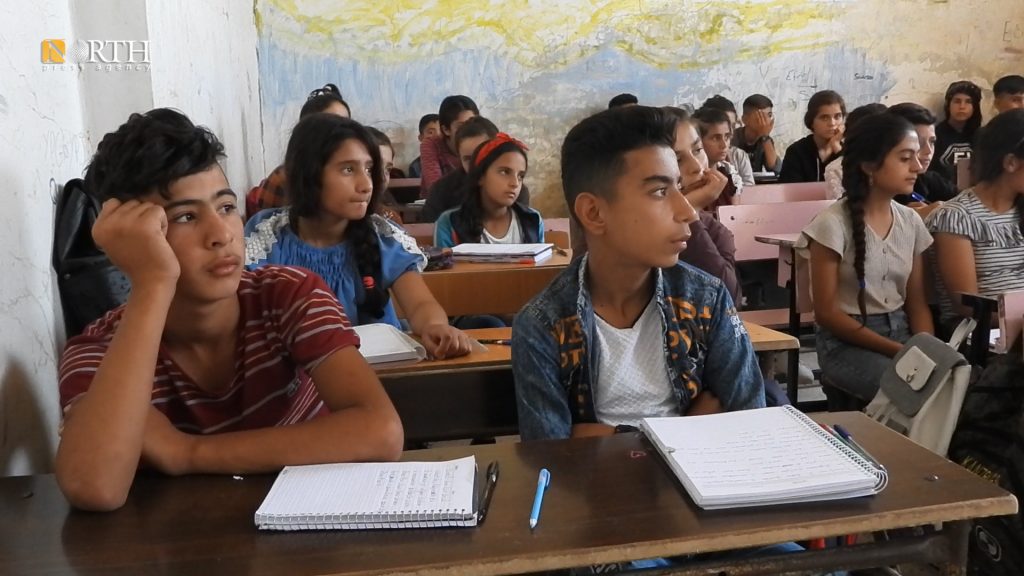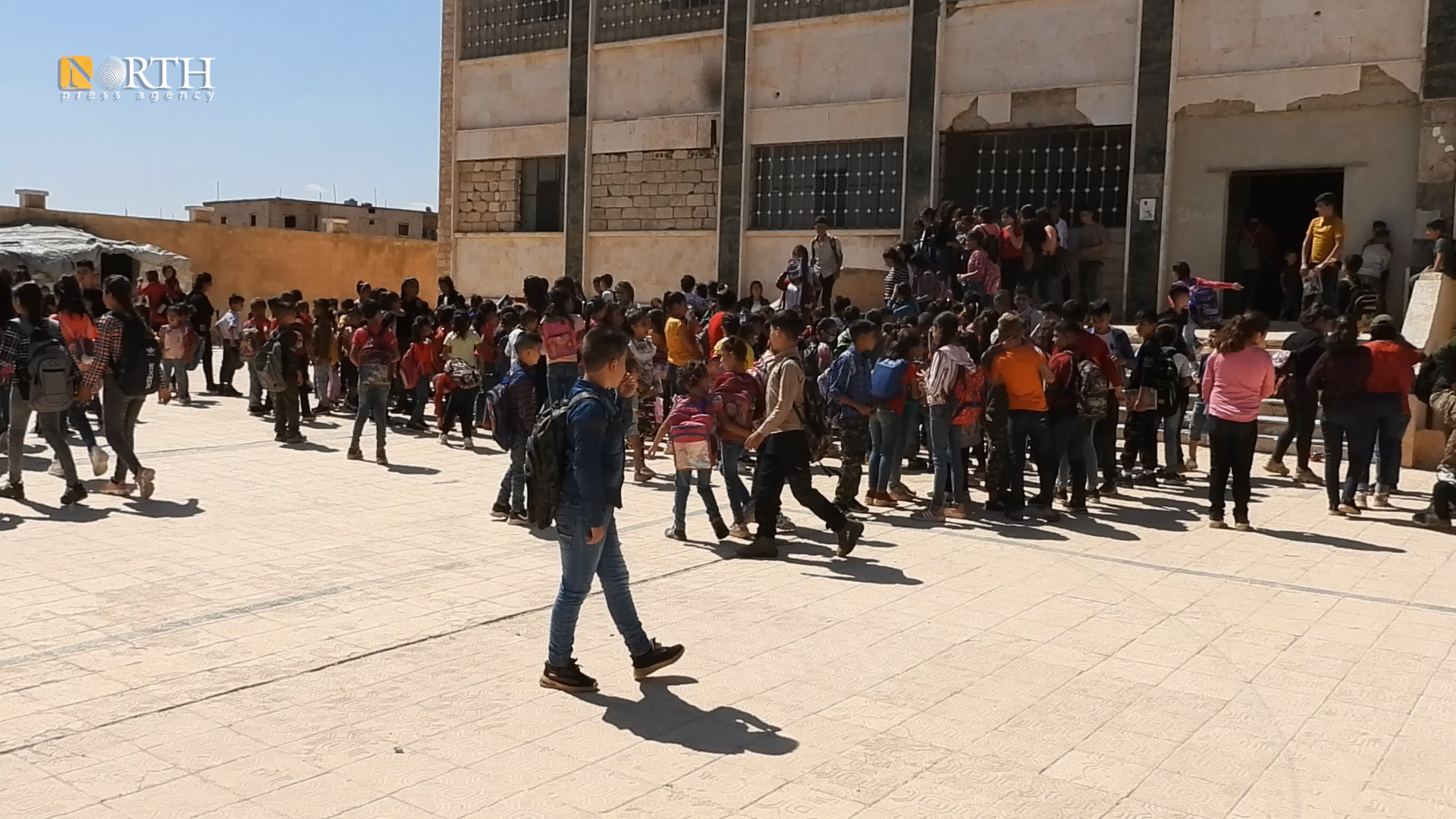ALEPPO, Syria (North Press) – Since she left the Afrin region in the northern countryside of Aleppo, northwest Syria, tenth-grade student Rania al-Hussein in the school of Tel Qarah village is facing difficulties due to the lack of schoolbooks and her need for more notebooks.
For more than three years, security checkpoints of the Syrian government near the city of Manbij have been preventing the entry of books approved by the Autonomous Administration of North and East Syria, (AANES) and education supplies such as desks, boards, maps, and other devices, to the areas where Afrin’s IDPs reside in the northern countryside of Aleppo.
When Turkey invaded Afrin in March 2018, about 300,000 people were displaced to the northern countryside of Aleppo, according to statistics from the AANES in Afrin.
Some of the IDPs are distributed among five camps, which are al-Awda, Afrin, Barkhawdan, Sardam, and Shahba, while others settled in 42 villages and towns in Aleppo’s northern countryside.
Al-Hussein said that the lack of books negatively affected their comprehension of lessons. “We spend most of the time writing lessons on notebooks which turned into books. It is what prevents us from discussing the lesson and asking questions about it.”
“Earlier, we were buying some notebooks to write important notes. Now, we buy a notebook for each subject,” al-Hussein added, referring to additional financial burdens.
Last week, the 2021-2022 academic year of the AANES’s areas began.
The regime rejects our curricula
“All our attempts to secure school books from the Jazira region have failed, as the government prevents our curriculum from entering Shahba,” said Berivan Khalil, co-chair of the Education Board in Afrin.
She pointed out that the board appealed to UNICEF and human rights organizations to intervene and allow the entry of books to the northern countryside of Aleppo, “but in vain.”
When the regions of Afrin, Kobani, and Jazira left the government’s control in 2011, the AANES adopted an educational curriculum based on the principle mother tongue education in its areas of control, instead of learning in the Arabic language only.
With the beginning of the 2014-2015 academic year, the AANES in Afrin started to teach its curriculum for the first three grades, to successively include all school grades, followed by Kobani and Jazira, where it applied it in the 2015-2016 academic year.
The AANES developed the curriculum in three local languages: Kurdish, Arabic and Syriac, in addition to an English language subject.

This year, schools of the AANES Education Board in Afrin, which are currently working in areas in the northern countryside of Aleppo, received 16,000 students of the elementary, preparatory, and high school stages, according to the Education Board.
Before the start of the academic year, the board prepared five schools in villages of the northern countryside of Aleppo which were out of service over the past few years due to the battles, bringing the number of schools to 80, in addition to five schools in the camps with a teaching staff consisting of 850 teachers.
Poor financial capabilities
The board cannot buy a printer, so it resorted to copying a few books using small printers.
These books are not well received by students, especially the elementary students, “who do not accept books in black and white,” Khalil said.
Meanwhile, teachers prepare lessons at home and in the classroom, and they write on boards so the students copy the lesson on their notebooks.
Teachers in the region say that they are forced to allocate a class for writing the lesson and another for explaining it which affects the number of lessons during a semester especially amid fears of school suspension if lockdown periods were imposed by health authorities due to COVID-19.
Hannan Othman, a history teacher in a school in the northern countryside of Aleppo, said that the lack of books affects the students’ comprehension, “especially as some lessons need pictures, maps, and tools to convey the idea to the students.”
He believed that the method they follow is useless, because students may incorrectly copy information from the board.
Frequent Turkish shelling
Othman pointed out that the displacement and residency in camps amid the frequent bombardment of Turkish forces and Turkish-backed armed Syrian factions on the area constitutes an additional challenge for the students.
On December 2, 2019, Turkish forces and the Turkish-backed factions carried out intense missile attacks on Tel Rifaat town in the northern countryside of Aleppo.
The attack killed ten civilians, including eight children, and wounded another eight.
In January, four civilians were killed and more than ten were wounded in a Turkish attack on Tel Rifaat town.
On July 11, four people were wounded, including a child, in a Turkish attack that targeted the center of Tel Rifaat town.
“The frequent shelling affects the students’ psychology, as they previously witnessed such shelling over 58 days in Afrin,” Othman added.

